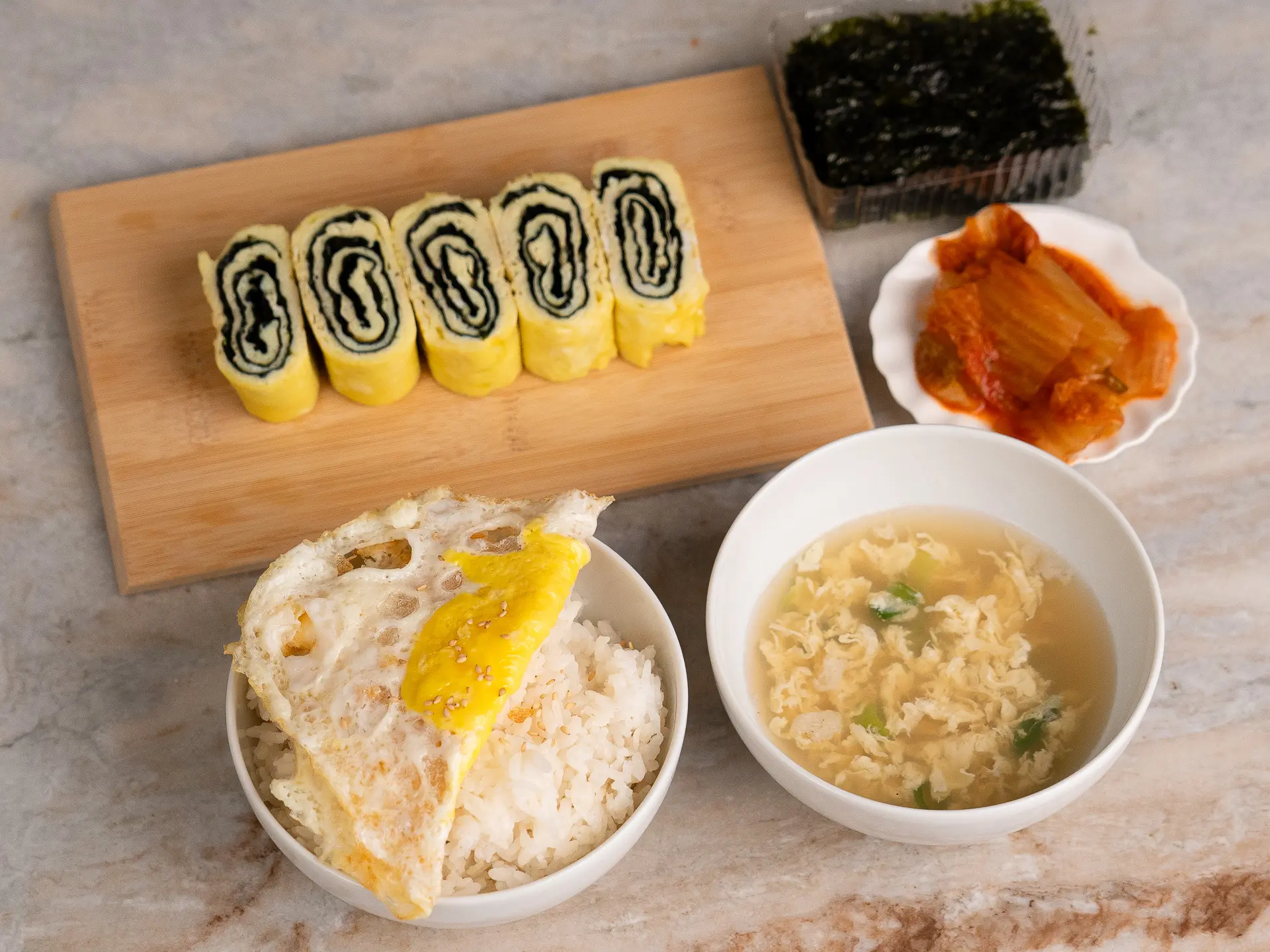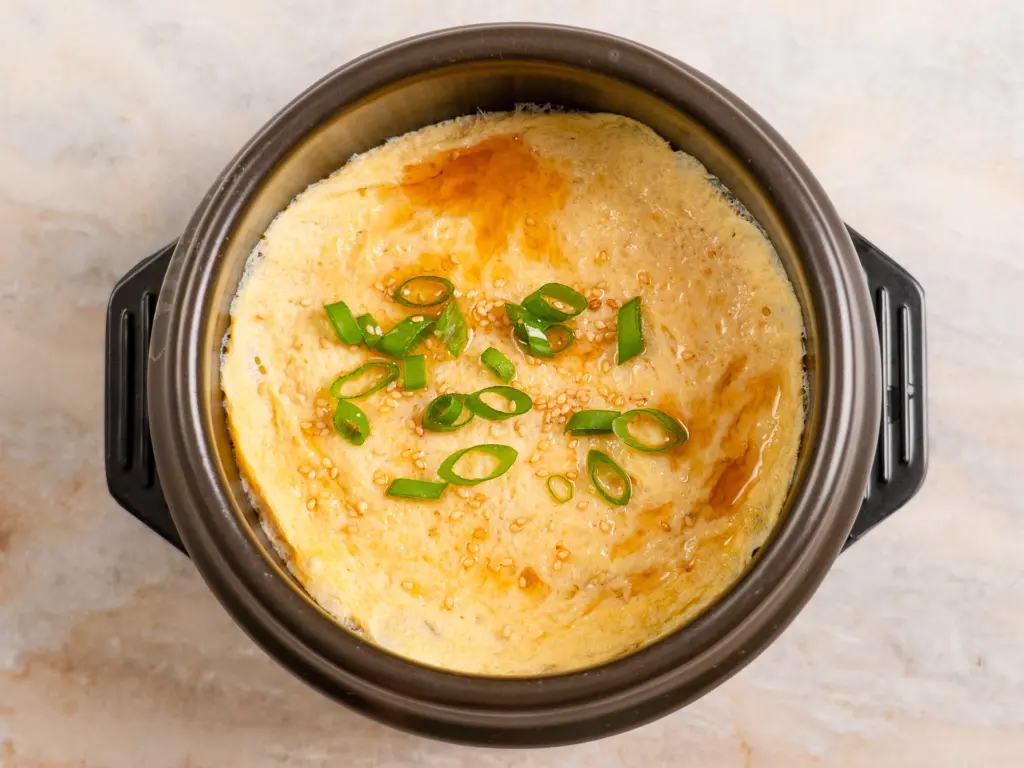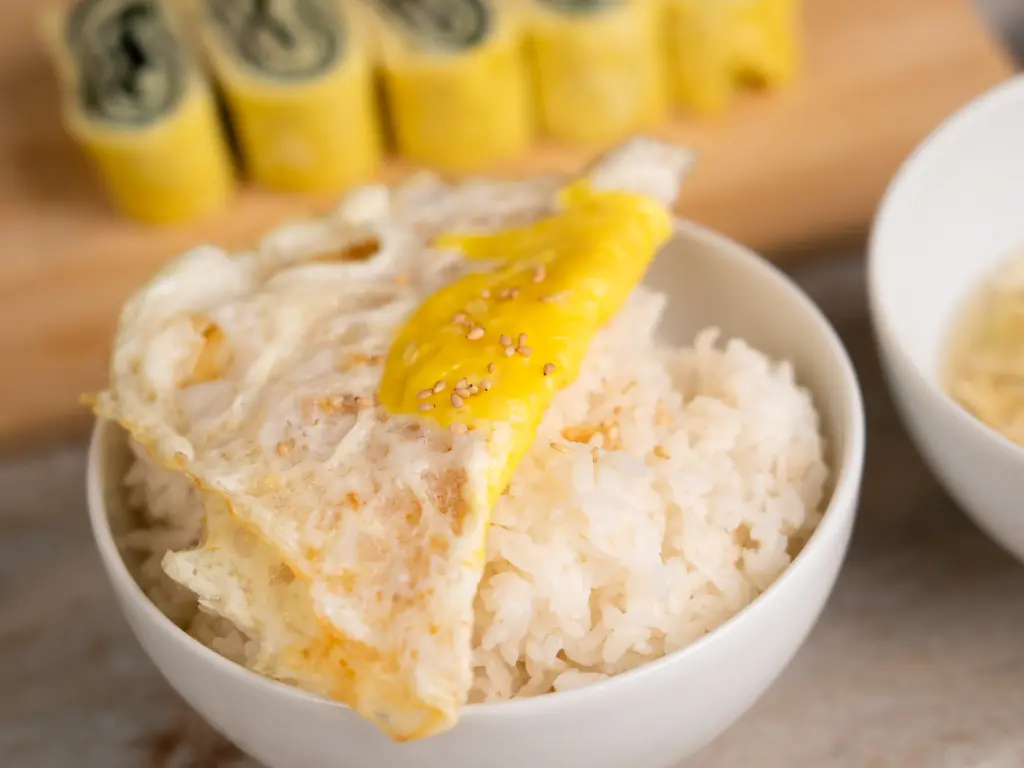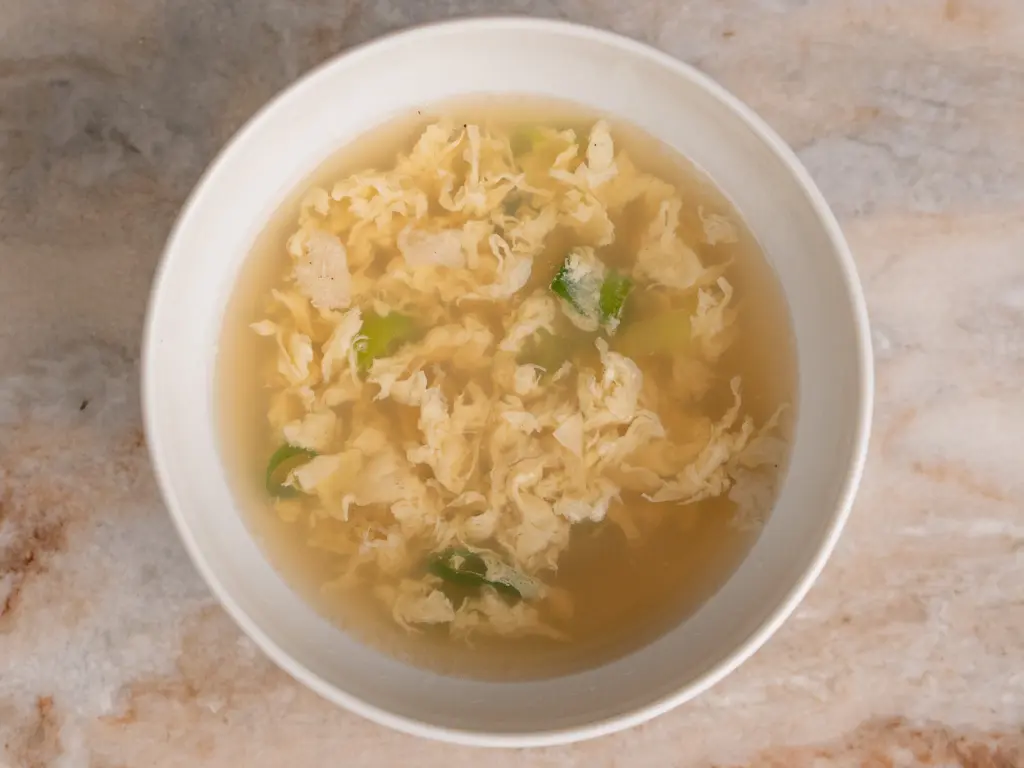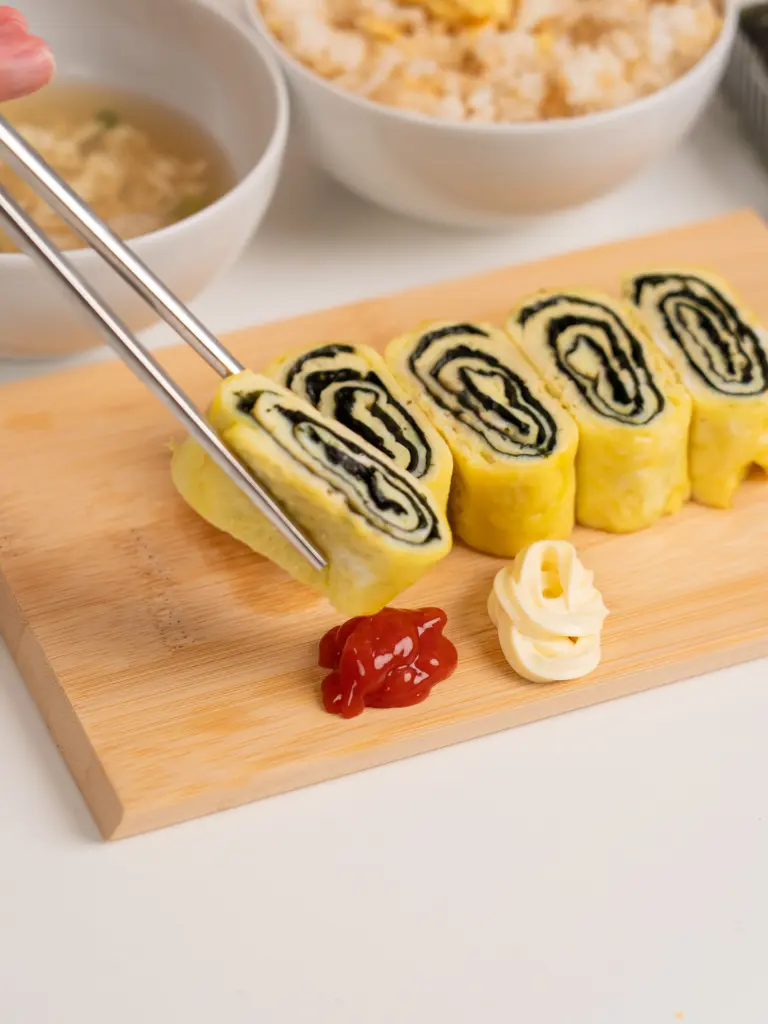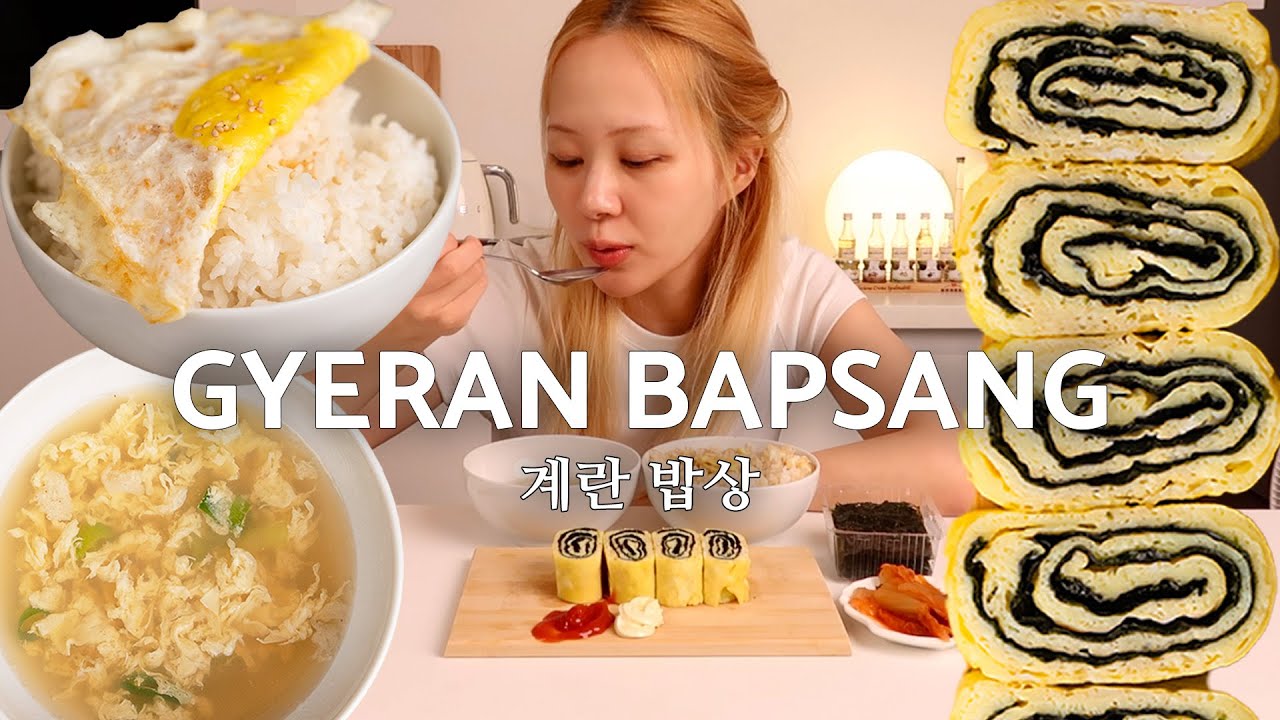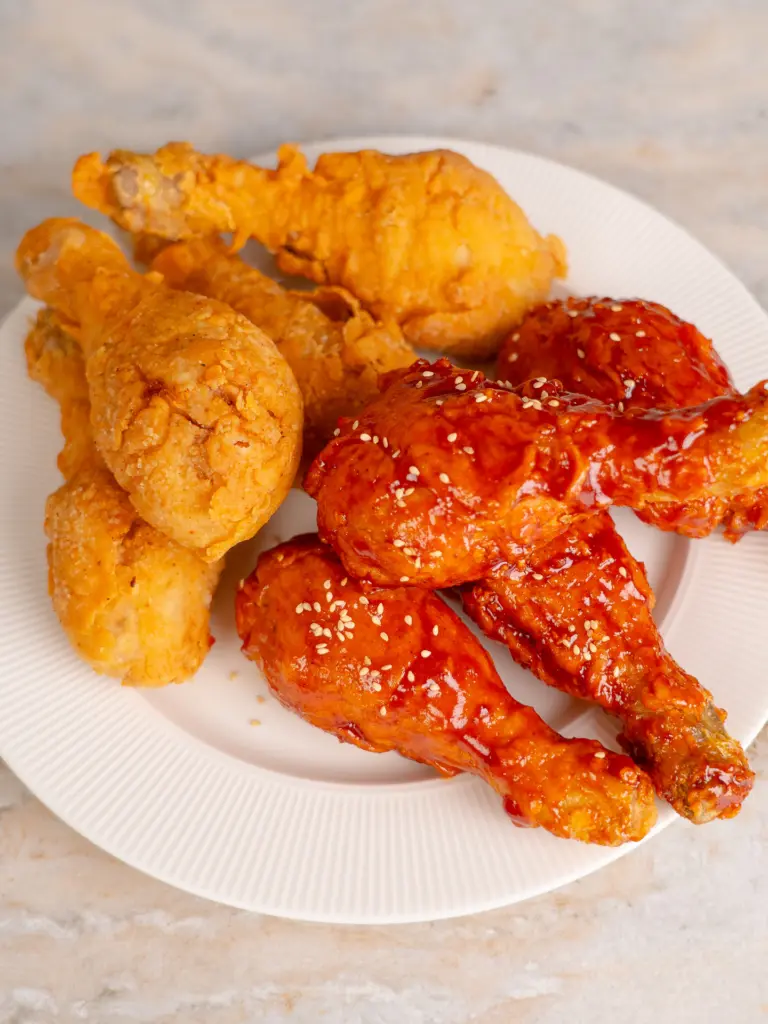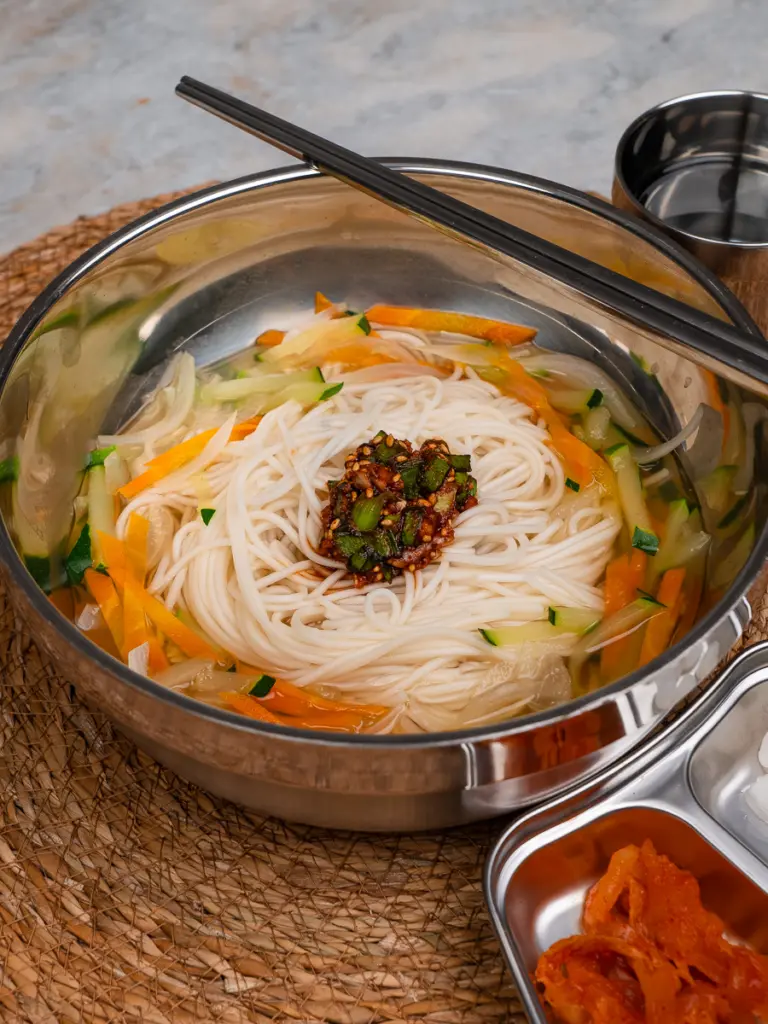Gyeran Bapsang: Easy Korean Home Meal with Eggs (Egg Rice, Egg Soup, Egg Roll)
Today, let’s make Gyeran Bapsang (계란 밥상) which is a full Korean home meal using just one ingredient, eggs. This isn’t a fancy restaurant-style dish. It’sjipbap (집밥), a warm and simple Korean home-cooked meal. Easy, humble, and made with love using healthy ingredients. Let’s bring together a comforting table withegg rice, egg soup, and egg side dish, all from just eggs.
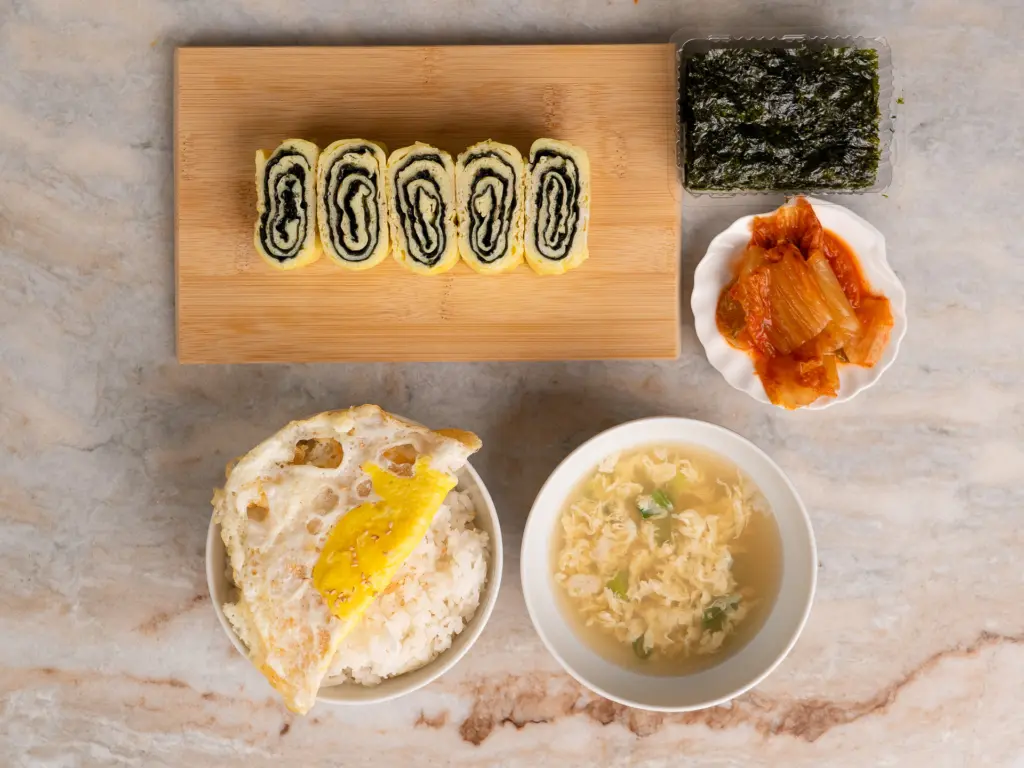
What is Gyeran Bapsang?
Gyeran means “egg,” and Bapsang refers to a full Korean meal consisting of rice, soup, and a few side dishes (banchan). Gyeran Bapsang is a complete Korean home meal made just with eggs, including egg rice, egg soup, and simple egg side dishes.
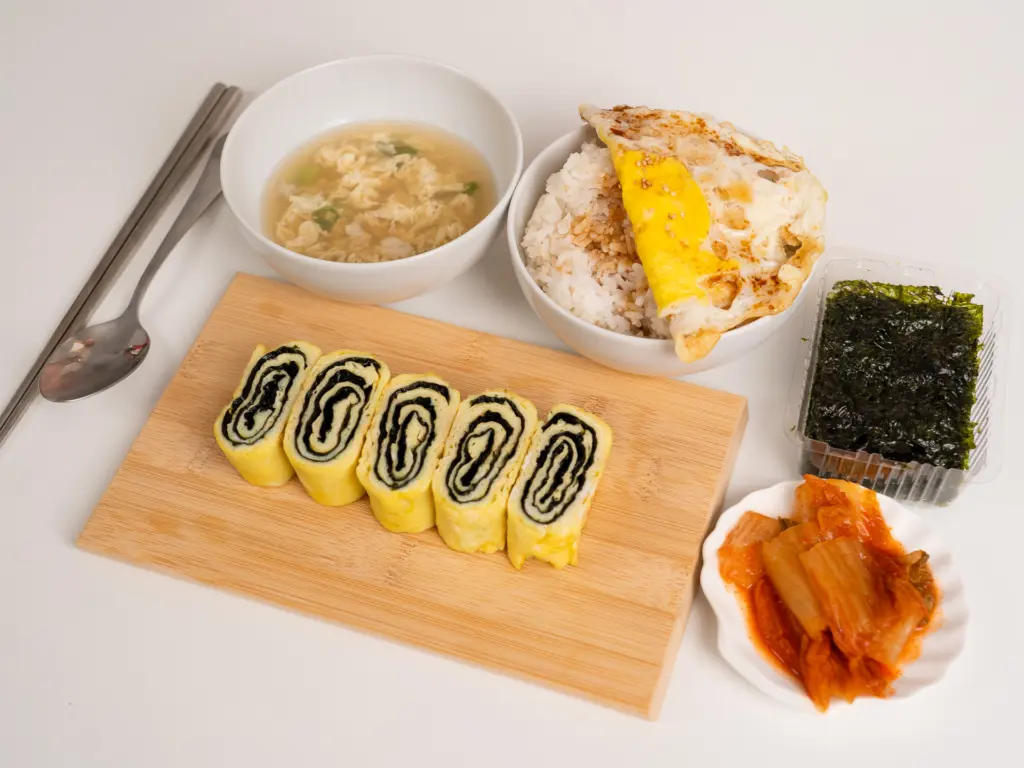
Since this is about Korean meals at home, I’ll show you the easiest, fastest way that real Koreans cook at home. Forget the fancy restaurant-style meals with ten different banchan. That’s not how we usually eat in Korean households.
At home, most Korean meals are built around three side dishes, rice, and soup or stew. Just as my Korean mom used to cook — quickly, casually, and with love — I want to show you how to make simple, authentic Korean dish. It may look basic, but it’s the most authentic and delicious kind of Korean meal.
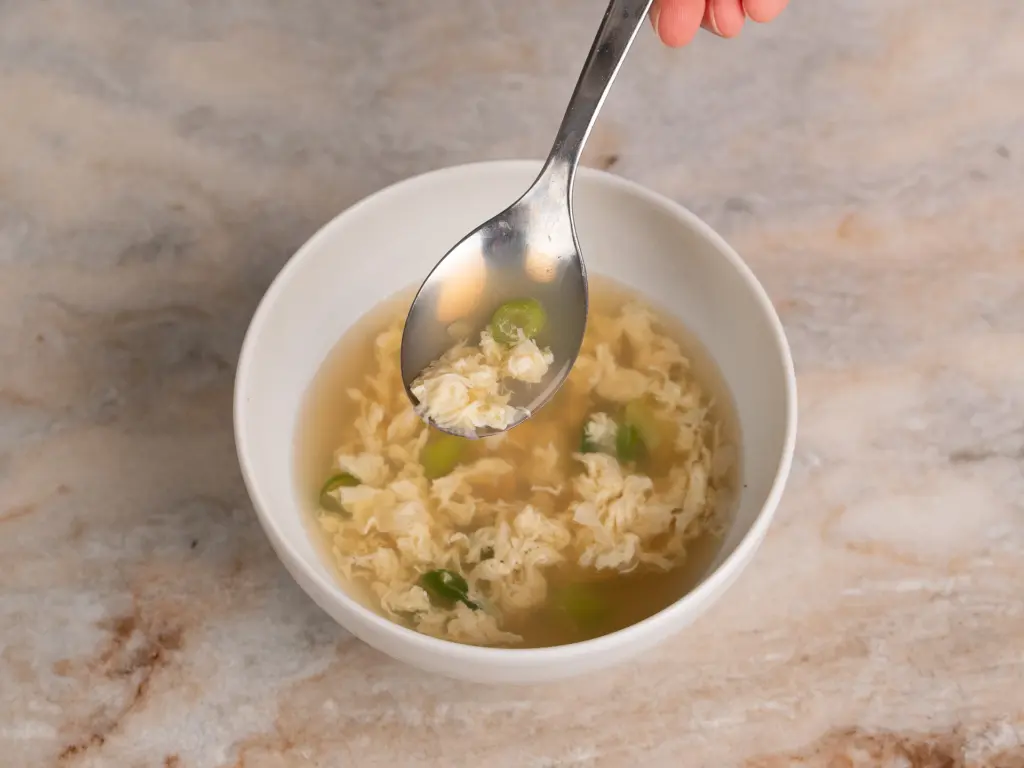
Jipbap 집밥 – Korean Home-Cooked Meals
Jipbap refers to home-cooked meals, or the simple, everyday food that Korean families eat at home. In Korea, however, jipbap is more than just food made at home. Jipbap carries warmth, care, and the feeling of family.
Many Koreans say that when life gets tough, they crave jipbap — a comforting meal made with a mother’s hands, filled with love and care. Compared to restaurant food, which is often overly sweet, salty, or heavily seasoned, jipbap is balanced and lightly seasoned. It’s designed to provide real nutrition and everyday strength. Even just one good homemade meal can lift your spirits.
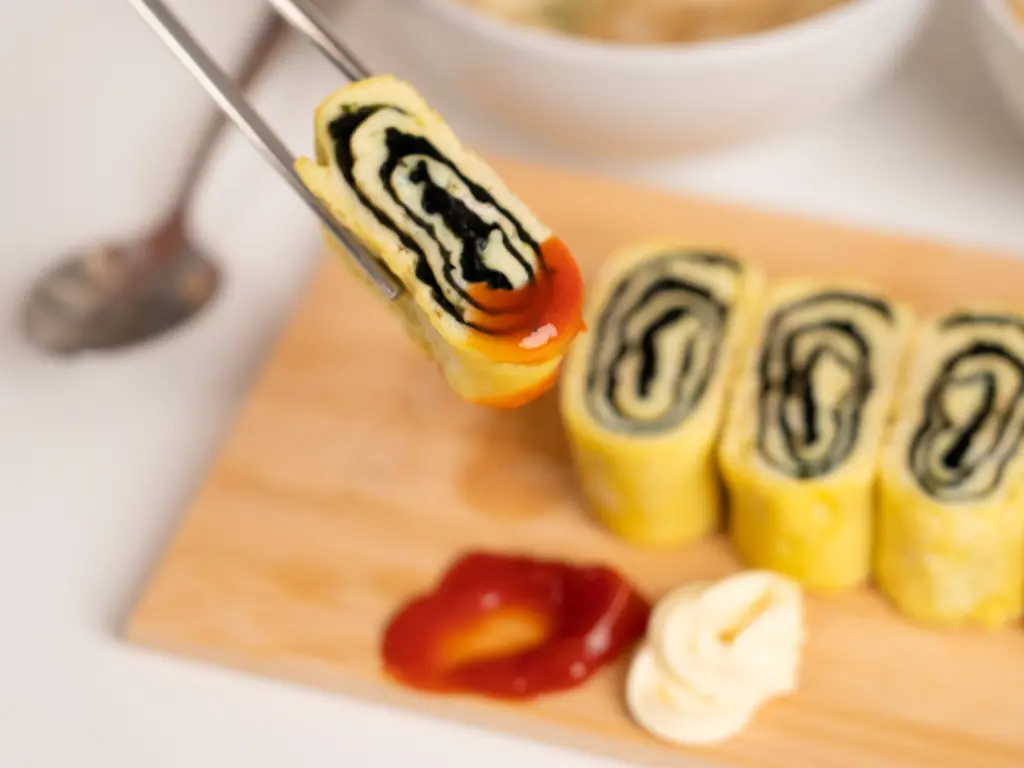
While home cooking is common and expected in Europe, it’s a different story in Korea, especially for those living alone. Many people in Korea eat out or order delivery more often than they cook. Ironically, groceries in Korea can be more expensive than in many European countries or the UK, while eating out is relatively cheap. That’s why jipbap feels so special — it’s not just about convenience; it’s also about care. Homemade food truly fuels you, both physically and emotionally.
Eggs in Korean Dishes
There are so many Korean dishes made with eggs. From gilgeori toast (Korean street toast) loaded with fluffy scrambled eggs to the popular mayak eggs (soy-marinated eggs), eggs are a key ingredient in Korean cuisine — especially in Korean side dishes (Banchan).

Why? In the past, meat was expensive in Korea, and it still is today. A long time ago, about 50 years ago, many families raised chickens in their yards, so eggs were one of the most accessible and affordable sources of protein. That’s why you’ll find so many Korean side dishes made with eggs, even today.
But it’s not just about cost or nutrition — Koreans truly love the soft, savory flavor of eggs.
Eggs are also used for visual appeal. Thin egg crepes (gyeran-jidan) are sliced and placed on top of dishes like tteokguk (rice cake soup) to add beautiful color. Hard-boiled eggs are often added to tteokbokki for texture and appearance. Dishes like bibimbap and kimbap also include egg, making them more colorful and visually balanced. In Korean cooking, eggs are everywhere — not just for taste, but for tradition, texture, and even beauty.
Korean Egg Recipes
Here are some popular Korean egg recipes that are super easy to make — just like many Koreans cook at home.
Microwave Steamed Eggs 계란찜
A Korean BBQ dish commonly includes steamed egg as a side so you might already know this. Traditional gyeran jjim (Korean steamed eggs) is usually made over the stove, but it can be tricky. The bottom may burn, and constant stirring is required. That’s why many Koreans prefer a simpler version using only a microwave. In just 5 minutes, you get soft, fluffy steamed eggs without the hassle.
Recommended Ttukbaegi (Earthenware Pot) : US l UK
5 Minute Microwave Korean Steamed Eggs – Easiest Gyeranjjim Recipe
Gochujang Eggs 고추장 계란볶이
Soy-braised eggs, or gyeran jorim, are a classic Korean side dish. These days, however, a spicy, gochujang-based version is trending. Since many Koreans don’t enjoy cooking over a stove, this version is made in the microwave — no fire necessary.
Egg Bokki: Tteokbokki for Weight Loss with Microwave
Egg Mayo Sandwich 에그 마요 샌드위치
Inspired by the Japanese tamago sando, this sandwich has become popular in Korea.
But who wants to boil, peel, and mash eggs, then mix them with mayo? That’s too much work for most people. So, we found a shortcut: a microwave method for making creamy egg salad in just minutes. This egg sandwich is now one of the most popular convenience store and homemade sandwiches in Korea.
Korean Egg Salad Sandwich with Microwave
Gyeran Bapsang Menu
Gyeran Bap (Egg Rice) 계란밥
Gyeran bap is the ultimate Korean comfort food and traditional Korean dish. For many Koreans, it’s often the first dish they learn to make, and it’s a meal that evokes nostalgia for the ones they loved who used to cook it for them. This simple yet deeply comforting dish consists of a warm bowl of steamed white rice topped with a fried egg and mixed with soy sauce and sesame oil. Koreans grow up eating this dish from a young age, and it evokes memories of family, warmth, and home.
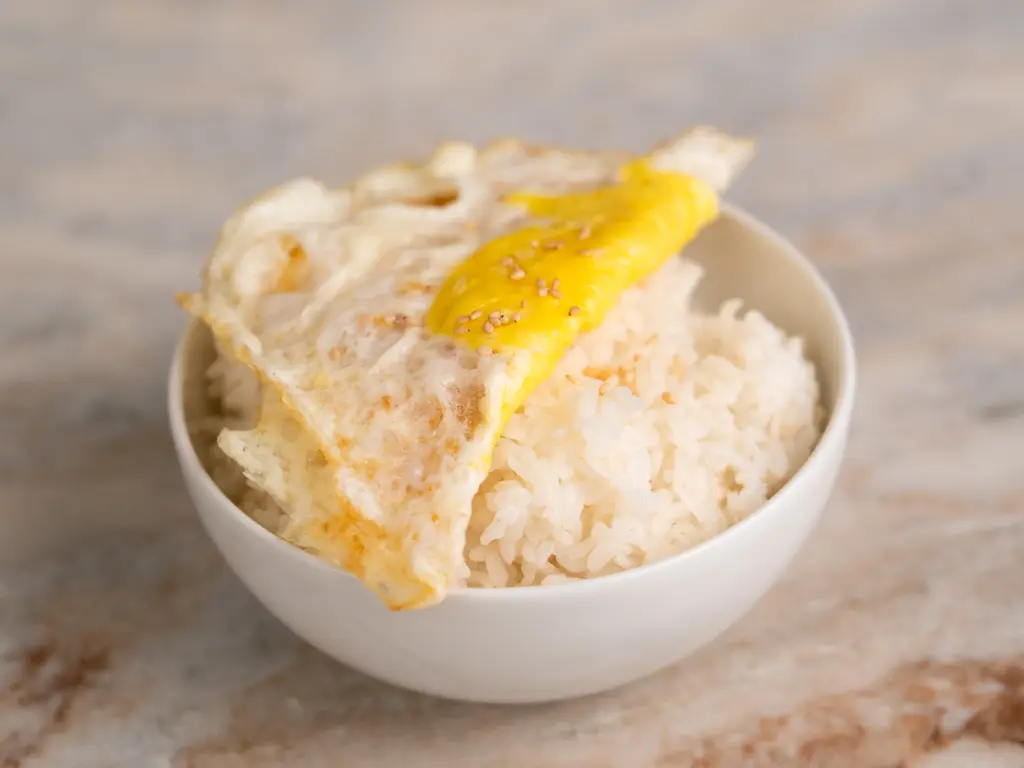
The flavor is savory and nutty, with the egg gently blending into the rice. Best of all, it takes only three minutes to make, which is why it’s a go-to breakfast or quick meal for many. In this version, the egg is fully cooked, but if you prefer a creamier texture and richer flavor, try using an egg with a runny yolk. It’s just as delicious, if not more so.
Korean Fried Egg Rice: 3 Minute Gyeran Bap
Gyeran Guk (Egg Drop Soup) 계란국
Egg drop soup is found in many cultures, but the Korean version is unique. Unlike Chinese egg drop soup, which is thickened with starch, Korean gyeran guk is light and clear. Flavored with guk-ganjang (Korean soup soy sauce) and scallions, it has a clean, savory taste.
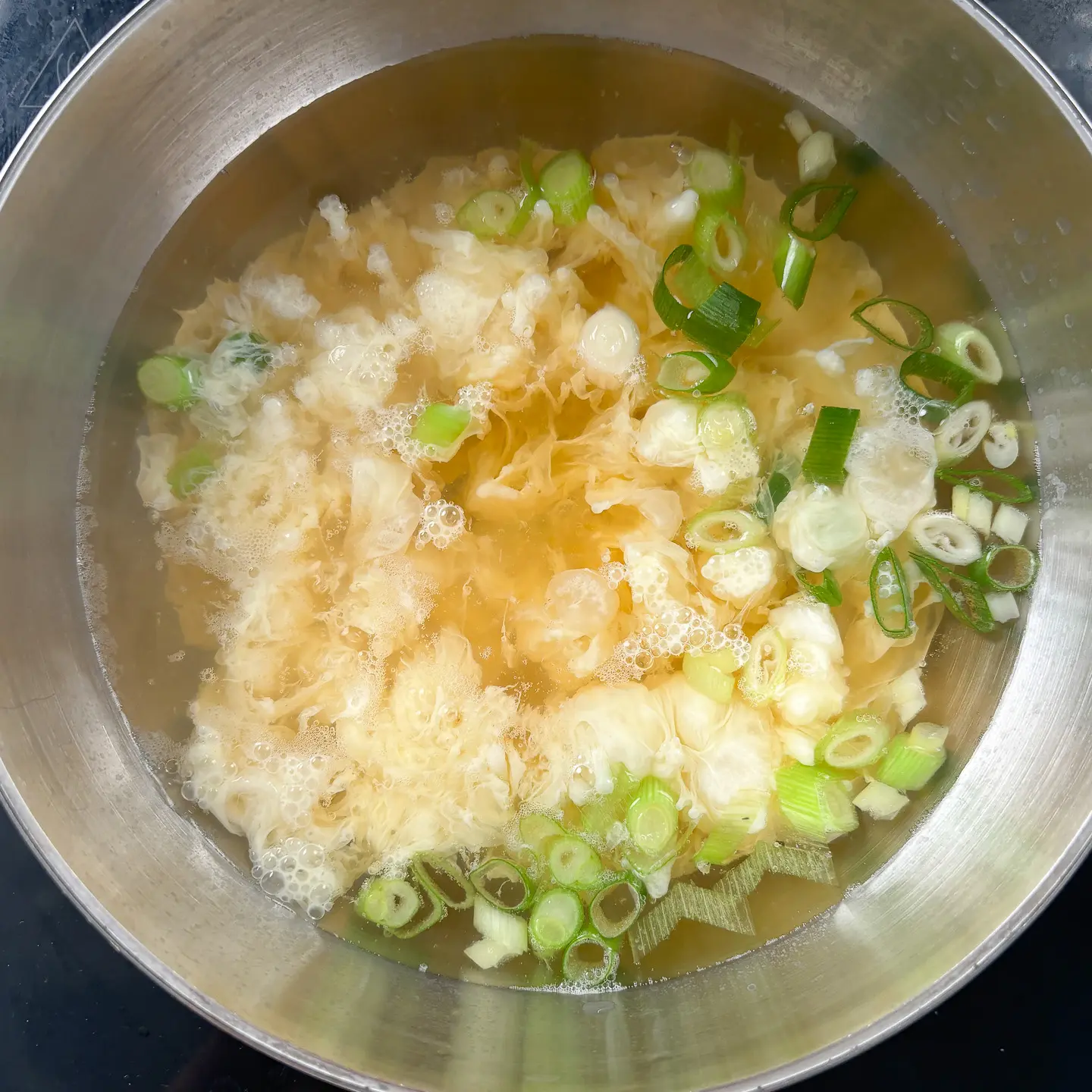
It’s one of the easiest Korean soups to make, ready in just 5 minutes. It’s gentle on the stomach and perfect for breakfast. That’s why many Koreans start their day with this warm, soothing soup. You can enjoy it on its own or pour it over rice for a simple, one-bowl meal. It was also one of the soups my Korean mom made most often at home. It’s comforting, nourishing, and always welcome.
5 Minute Korean Egg Drop Soup: Gyeran Guk
Gyeran Mari (Egg Roll) 계란말이
Although Korean gyeran mari and Japanese tamagoyaki look similar, their taste, texture, and ingredients are completely different. Tamagoyaki is typically made with eggs that have been strained for a soft texture and flavored with sugar and mirin for a sweet finish. In contrast, gyeran mari is savory and seasoned with salt. It is often mixed with vegetables, such as carrots and scallions, as well as seaweed and cheese.
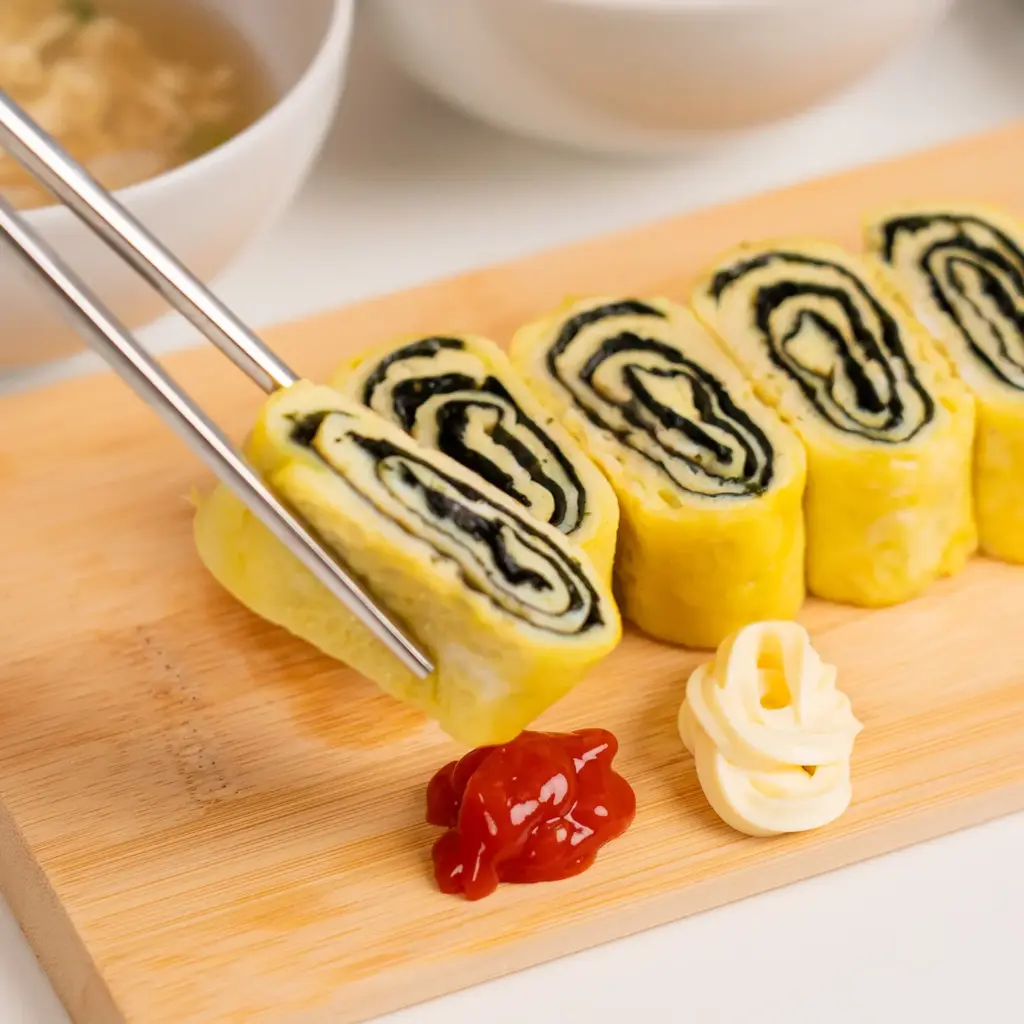
This version, gim gyeran mari (Korean egg roll with seaweed), is based on the recipe my Korean mom used to make all the time. It’s simple: Place a sheet of gim (roasted seaweed) on the egg and roll it up. It’s quick, satisfying, and full of the deep umami flavor that only seaweed can provide. This classic Korean-style omelet is a popular banchan and comfort food.
Korean Egg Roll with Seaweed: Gim Gyeran Mari
Banchan to Pair with Gyeran Bapsang
- Seasoned Seaweed (Jomi gim, aka “Snack” Seaweed)
I was honestly surprised to see seasoned seaweed sold as “snack seaweed” in Europe and the U.S.
In Korea, this is a traditional side dish (banchan), not a snack haha We wrap rice with it, roll it into egg omelets, and even crumble it into soups. It’s salty, crunchy, and packed with umami — a perfect match with egg rice.
Recommended Seasoned Seaweed: US | UK
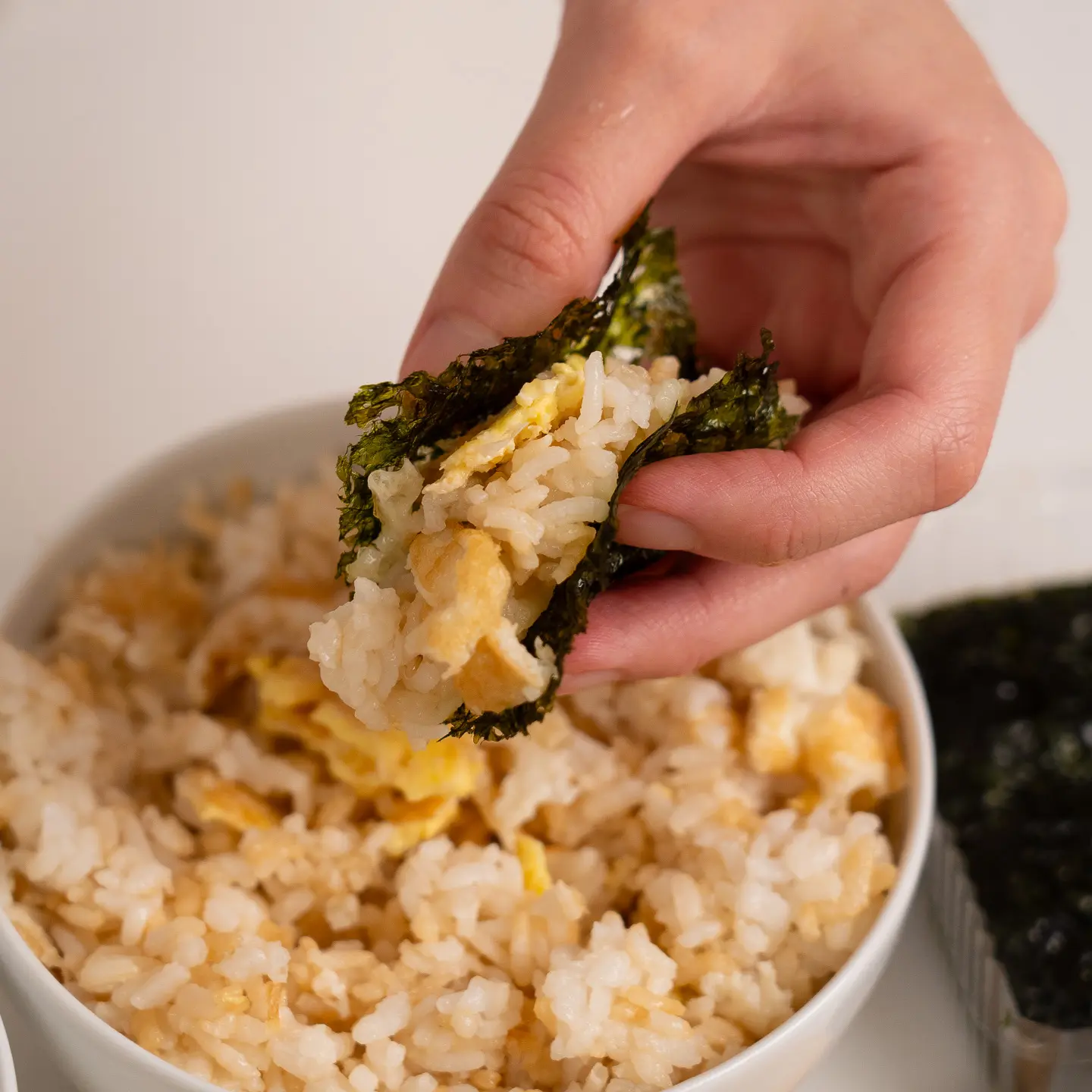
- Kimchi
That’s right. Kimchi is an essential part of every Korean meal.

